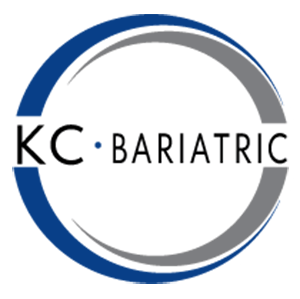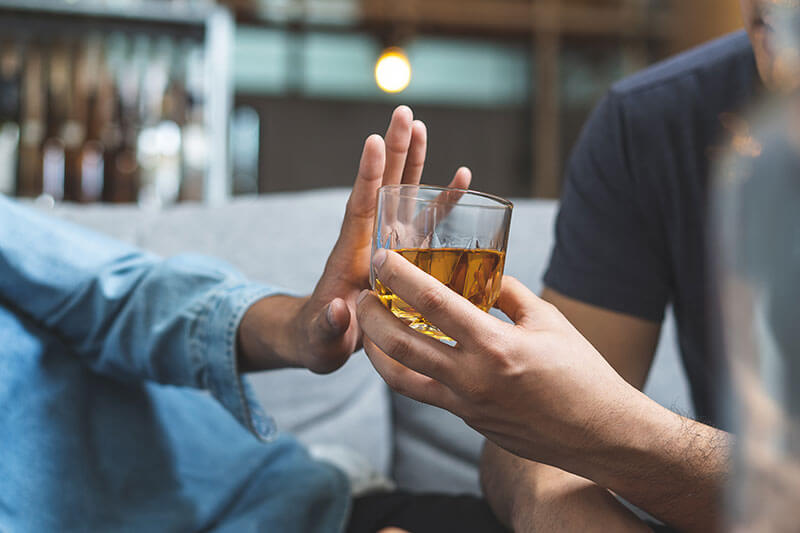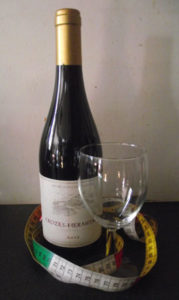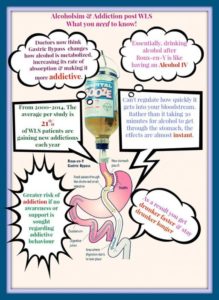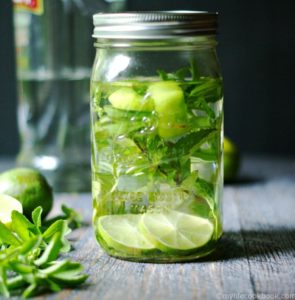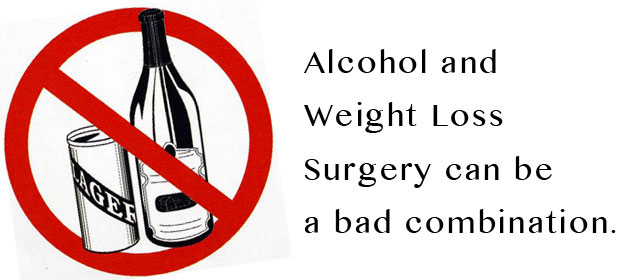What Happens When You Drink?
We have all experienced the effects that come with drinking an alcoholic beverage or two. Drinking alcohol can come with considerable costs also. Moderate amounts of alcohol can feel socially beneficial, but an excessive amount can cause a variety of negative consequences. Impaired judgement from excessive alcohol can cause people to over-consume empty calories and perhaps drive when they shouldn’t. It is important to remember that weight loss surgery cannot protect you against gaining weight from liquid calories and alcohol relaxes the esophagus and stomach, allowing you to eat even more. The combination of impaired judgement and a relaxed stomach can be a dangerous combination!
Risks of overconsumption of alcohol can stem beyond calorie surplus and have even more serious consequences. After bariatric surgery, even 1 drink could place someone at risk of getting a DUI. Obviously, this is never worth it!
Why do you get drunk faster after bariatric surgery?
Weight loss surgery makes all of the consequences of drinking alcohol come a lot faster. When the stomach is smaller, there is less of the enzyme alcohol dehydrogenase present in the body. This enzyme is responsible for breaking down alcohol, therefore alcohol lingers in the system longer and peaks higher. Because of reduced stomach size, alcohol also moves more rapidly into the small intestine, causing it to be absorbed more quickly.
Tips to plan ahead for social gatherings
- Eat your meal before you drink
- Rule of thumb- 1 drink before surgery = 3-4 drinks after surgery – know your limit!
- If you do drink, consider options that are low in sugar and avoid mixed cocktails that contain juice or soda
- If you are to drink, have your 1 drink after other people have had a few too so that you feel the effects at a similar pace and you are less pressured to overconsume as the night goes on
- You may carry around some water in a cocktail glass with some lime and sip on it at the beginning of the night so that you do not need to repeatedly explain yourself why you do not have a drink in your hand
- Be aware of the possibility of addiction transfer. If you have been addicted to food in the past you want to be aware of the risks of becoming addicted to alcohol and keep yourself out of situations that put you at risk.
Non-Alcoholic Mint Mojito
Source: https://www.foodcoach.me/recipe/non-alcoholic-mint-mojito/print/
1 SERVING
Ingredients:
2 cups water
1/2 cup natural sweetener ex: Stevia or Swerve
1/2 cup fresh mint leaves
1 oz lime juice (approx half a lime)
Instructions Simple Syrup
Boil water and natural sweetener over the stop for about 5 minutes or until thickens into a syrup.
Instructions for Mojito
- Add mint leaves to a glass container with a lid (such as a mason jar). Pour syrup over mint leaves and let steep at least 20 minutes. Use immediately or can save for later.
- Add ice to drinking glass. Pour 1 tbsp of mint syrup and 1/2 cup cold water. Add 1 oz lime juice. Stir and serve.
- Add more mint syrup or lime juice per preference. Recipe Notes This recipe makes one mojito with additional simple syrup to make 4 glasses.
This recipe provides an estimated 32 calories, 0 grams protein, 3 grams carbohydrate and 0 grams fat.
With the holiday season upon us, we encourage you to have fun and enjoy social functions with friends, family and co-workers. Just be careful and remember, “everything in moderation”!
Sources:
Dr. Duc Vuong on “Alcohol after weight loss surgery”
